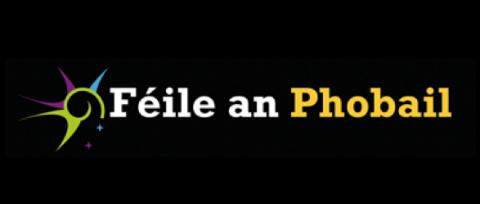Moving towards normality in the North

Although full reconciliation is still a long way off in Northern Ireland, the Féile an Phobail community event in Belfast shows that it has come much further than many could have ever imagined. By Vincent Browne.
On Wednesday evening, at St Louise‘s Comprehensive College on the Falls Road in Belfast, a fellow introduced himself as a republican and made an impassioned speech in favour of free speech, disagreeing with earlier comments by the Sinn Féin vice president, Mary Lou McDonald, who had been tentative on the issue.
This took place at a ‘Talk Back’ event at Féile an Phobail on the Falls Road, an annual community event, and certainly by far the biggest such event I have seen.
Subsequently, this republican was challenged on the issue of Orange Order marches: if he was so emphatic about the inviolability of freedom of speech, did he accept that members of the Orange Order had a right to exercise their freedom of speech through such marches, even where such marches went through nationalist areas and were the source of much antagonism and conflict?
He was adamant. Irrespective of what others thought and however offensive he and others found such marches, he said Orange marches had an entitlement to proceed, even through nationalist areas, and even though they caused great offence to the residents of such areas.
The audience of four or five hundred applauded, probably more for his consistency and courage than in approval of his position, but it was impressive nonetheless.
They also applauded Nelson McCausland, the DUP culture minister in the Northern Ireland executive, when he protested that he had a right to free speech, however offensive his views might be to the audience.
The issue at stake in his case had nothing at all to do with the familiar issues of contention in Northern Ireland - it had to do with his views on homosexuality.
As a fundamentalist evangelical Protestant, he said, the Bible had condemned sexual relations between people of the same gender - and he did likewise because he believed in the authenticity of the Bible as the word of God.
There was a heated debate on the issue, and some people tried to shout McCausland down, but when he asserted his right to free speech, there was that applause again.
It was the normalcy of the debate that I found surprising, as well as the presence of loyalists in the audience at this Falls Road event, some of whom contributed to the debate, one of them wittily and cleverly on the issue of the rescue of financial institutions. I got into a debate privately with this fellow afterwards.
He and another person who joined the company were from east Belfast, but they didn’t know each other, although they held very similar views on the organisation of society, as well as on their opposition to a proposal I had advanced during the meeting that no one should be paid more than five times the lowest-paid in society.
Both these fellows from east Belfast were clearly middleclass and well-off, relative to others anyway.
They argued my proposal was ludicrous, for it meant that most of their hard-earned money would be confiscated by the state to subsidise layabouts who spent their days stuffing their faces with junk food, lying on couches and watching daytime TV.
A familiar, Progressive Democrats-like rejoinder to advocacy of equality, but these guys were sharp and humorous! This Féile an Phobail is impressive.
It is right in the heart of the area that was most synonymous with the conflict in Northern Ireland.
It was here that hundreds of homes were burnt in what were known as the pogroms of August 1969. It was here that an entire community was placed under curfew in 1970.
It was here that the conflict ignited in 1971,with gun battles between the IRA and British soldiers. It was from here that IRA members were sent to bomb Belfast city centre and London and other British cities.
It was here that the huge funerals of the hunger strikers took place; here that many conspiracies to take the lives of hundreds of people were hatched; and here that the peace process was planned and carried through.
A few of the architects of some of those things were in the hall on Wednesday night, including Gerry Adams and Danny Morrison (the latter is chairperson of Féile an Phobail).
And remarkably, it is here that a reconciliation between the two communities in Belfast seems to be under way. It is standard practice for unionist politicians to take part in Féile an Phobail nowadays.
One of the events this year was the commemoration of the first person to lose his life because of the Titanic.
This was Samuel Joseph Scott, a 15-year-old loyalist who worked in the shipyard and was killed accidentally during the building of that ship. His body had lain in an unmarked grave in the city cemetery on the Falls Road.
Part of the Féile this year involved Sammy Douglas, a DUP member of the Assembly, unveiling a plinth to mark Scott’s death and speaking on what the shipyard meant to the loyalist people of east Belfast.
There was another part of the Féile enacted in the library on the Shankill Road.
There was a walking tour of loyalist murals in loyalist east Belfast, and much more on a similar vein.
Some of the people who are organising a similar event next year in east Belfast were present on the Falls on Wednesday night.
There is a long way to go before there is full reconciliation in Northern Ireland but, on the evidence of this event, it has come much further than many of us could have imagined.
{jathumbnailoff}
